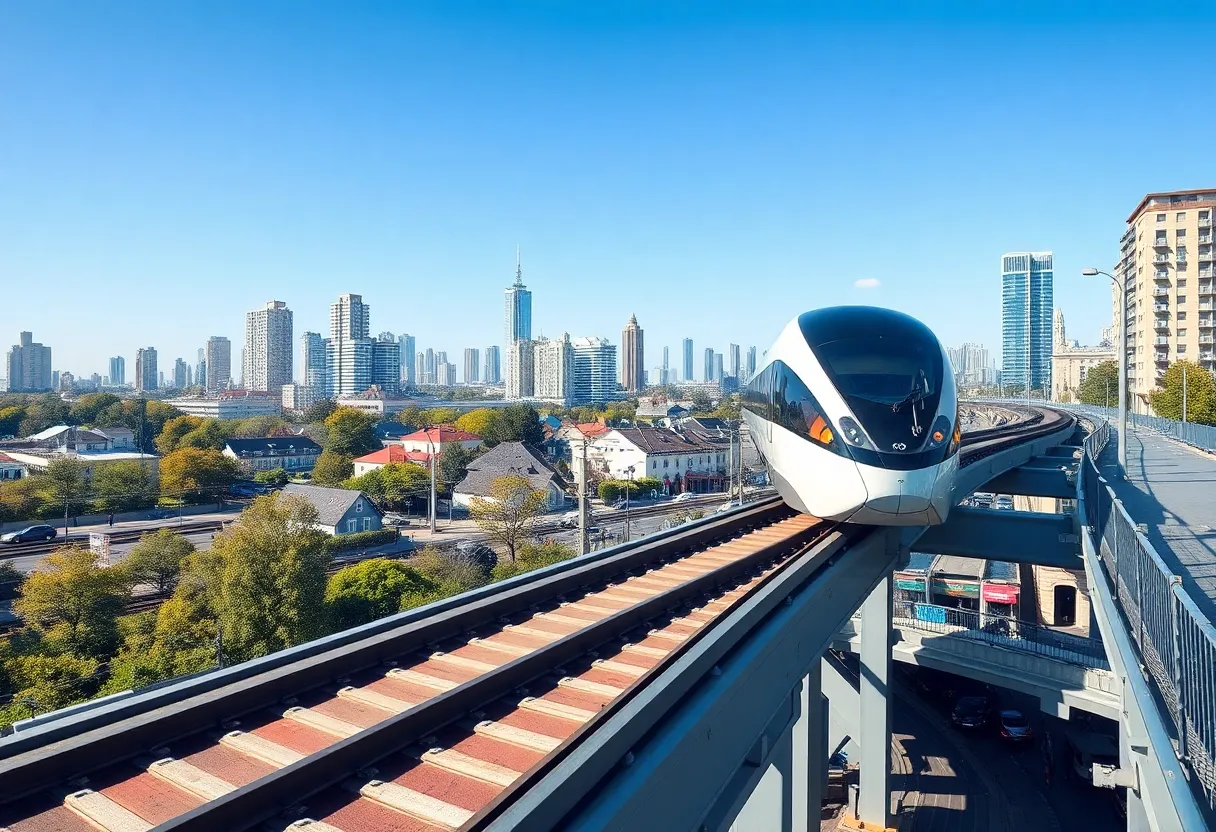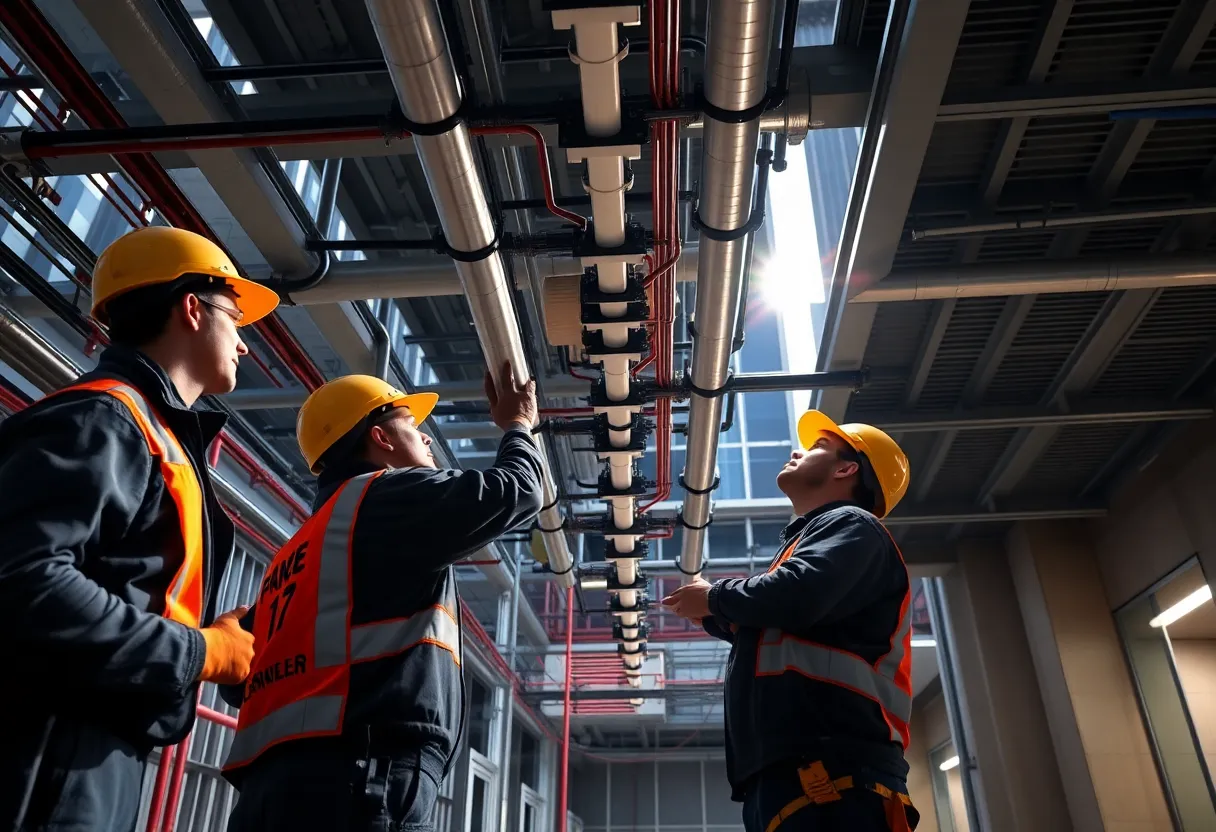News Summary
Dallas is facing uncertainty over its high-speed rail project linking the city to Houston after Spanish company Renfe exits the U.S. market. Despite potential economic benefits, including a $5 billion GDP boost and 28,000 new jobs, concerns grow about funding and timeline delays. Construction could take up to 86 months, and recent rescinded federal grants add to the anxiety among local advocates and stakeholders. As the future of this transformative project hangs in the balance, supporters remain hopeful that high-speed rail can address Texas’s infrastructure needs.
Dallas Faces Uncertainty Over High-Speed Rail Project as Renfe Exits U.S. Market
The city of Dallas is buzzing with chatter and concern around the future of its ambitious bullet train project that’s supposed to link it to Houston. Recently, news broke that Spanish railway company Renfe has decided to shut down its U.S. subsidiary. This move is strategically aimed at cutting losses in the U.S. market, and it’s creating quite a stir among local advocates and stakeholders who are eyeing the potential benefits of the high-speed rail line.
Economic Impact in Peril
This proposed high-speed rail line, stretching approximately 240 miles between Dallas and Houston, was once dubbed a game-changer for the local economy. Recent estimates from the Boston Consulting Group suggest it could deliver a whopping $5 billion boost to Dallas County’s GDP annually from 2029 to 2050. What’s even more exciting is the projection of over 28,000 new jobs linked to this rail line, largely in the construction and operational sectors.
But now, with Renfe’s exit, there’s growing anxiety about how this will impact the timeline and funding for the project. The train would theoretically zip commuters from Dallas to Houston in around 90 minutes, making it a swift alternative to driving or flying.
Shifting Timelines and Legal Hurdles
Unfortunately, delays have already crept into the project’s schedule. Texas Central, the company behind the high-speed rail initiative, has acknowledged that construction is set to take between 80-86 months after all planning is squared away. This lengthy timeline, combined with the political and legal opposition regarding the train’s route, is raising questions about its feasibility.
Funding Challenges on the Horizon
In a rather surprising move, the U.S. Department of Transportation recently rescinded a grant of $63.9 million that was allocated to Amtrak for this project. Reasons given included rising capital costs that have exceeded $40 billion. Critics, including Secretary Sean Duffy, have referred to the high-speed rail initiative as a potential “waste of taxpayer funds.”
Local landowners and communities have been vocal about their concerns, especially when it comes to the use of eminent domain for construction. This contentious issue has fostered a lot of unease, especially among people already feeling the pressure of urban development.
Advocacy in the Face of Uncertainty
Even with these clouds hovering above the project, many supporters passionately believe that high-speed rail can tackle pressing infrastructure needs across Texas. From reducing traffic congestion to offering a more sustainable option for commuters, the benefits might just outweigh the challenges, if managed correctly.
Texas Central is working hard to pursue both federal and private investment to drive the project forward despite the setbacks and uncertainties. Back in 2017, they even asked local governments to cover maintenance costs while being exempt from property taxes on land acquired through eminent domain.
The Future of Transportation in Texas
As the project inches through these tricky waters, it has garnered projections of ridership that could see between 3 million and 6.5 million passengers in its first full year of operation in 2035. The hope is that local advocates continue to rally behind this transformative project, even as Renfe’s exit invites skepticism and concern.
In a state known for its big dreams, it seems that the Dallas-Houston bullet train might just be a pivotal chapter in the ever-evolving transportation landscape of Texas. The excitement of a future with high-speed rail hangs in the balance, and all eyes will be on how Texas Central tackles the challenges ahead.
Deeper Dive: News & Info About This Topic
- Newsweek: Texas High-Speed Rail Project Boost
- Fox 4 News: Dallas-Houston High-Speed Train
- Houston Chronicle: Texas Central Rail Grant
- Wikipedia: High-speed rail in the United States
- Dallas News: Dallas-Houston Bullet Train
- Google Search: Dallas-Houston high-speed rail
- Statesman: Texas High-Speed Rail Bullet Train
- Encyclopedia Britannica: High-Speed Rail
- KBTX: Houston-Dallas High-Speed Rail Project
- Google News: Texas high-speed rail








